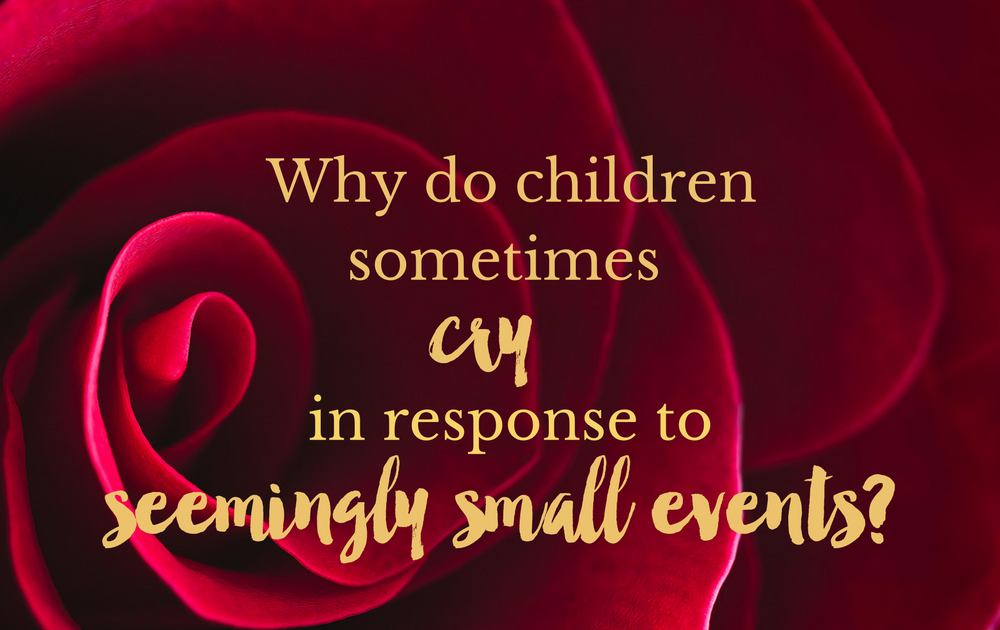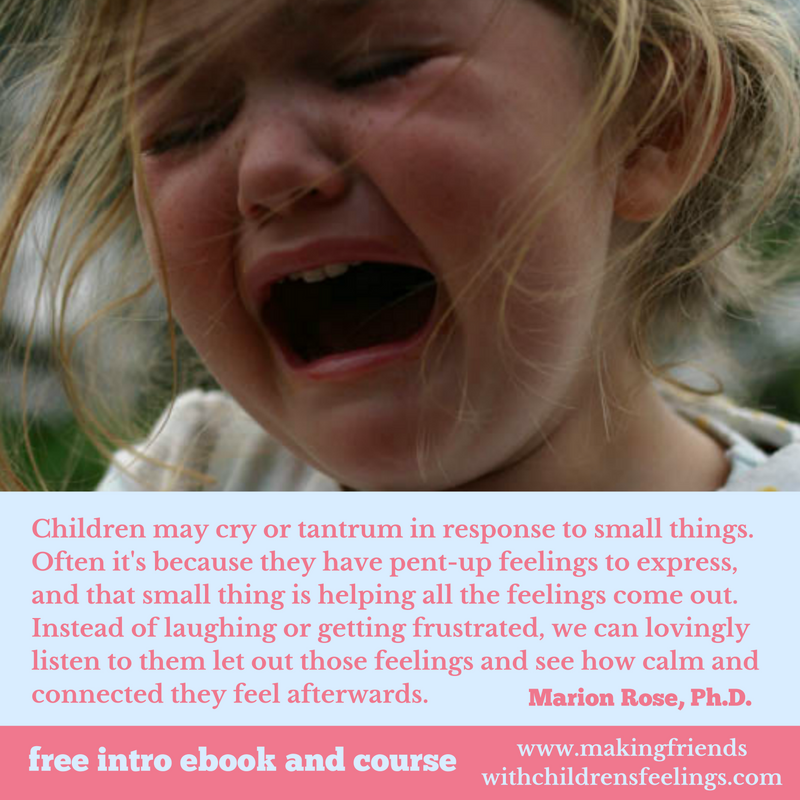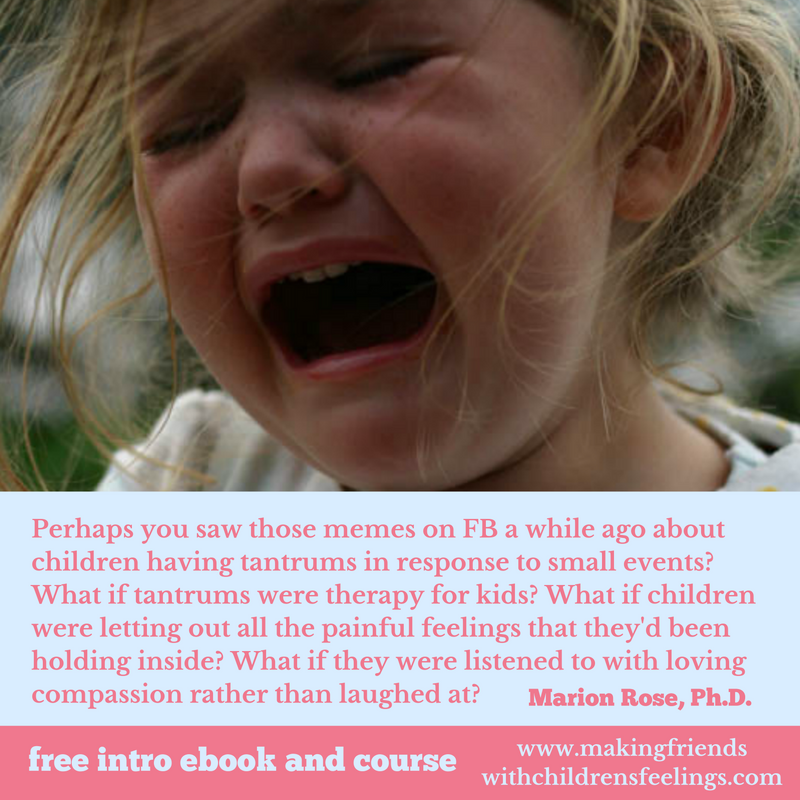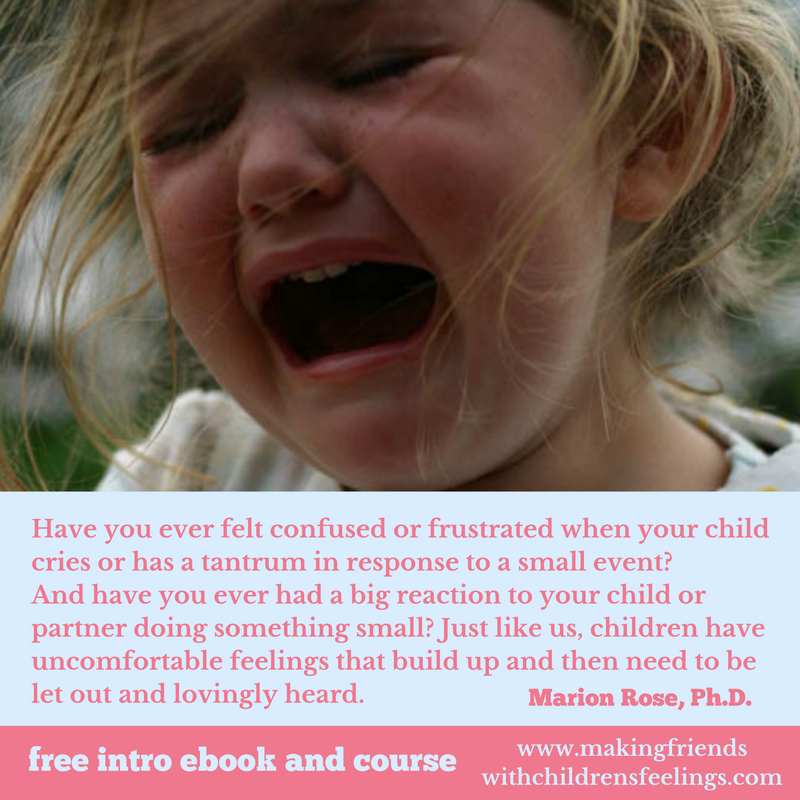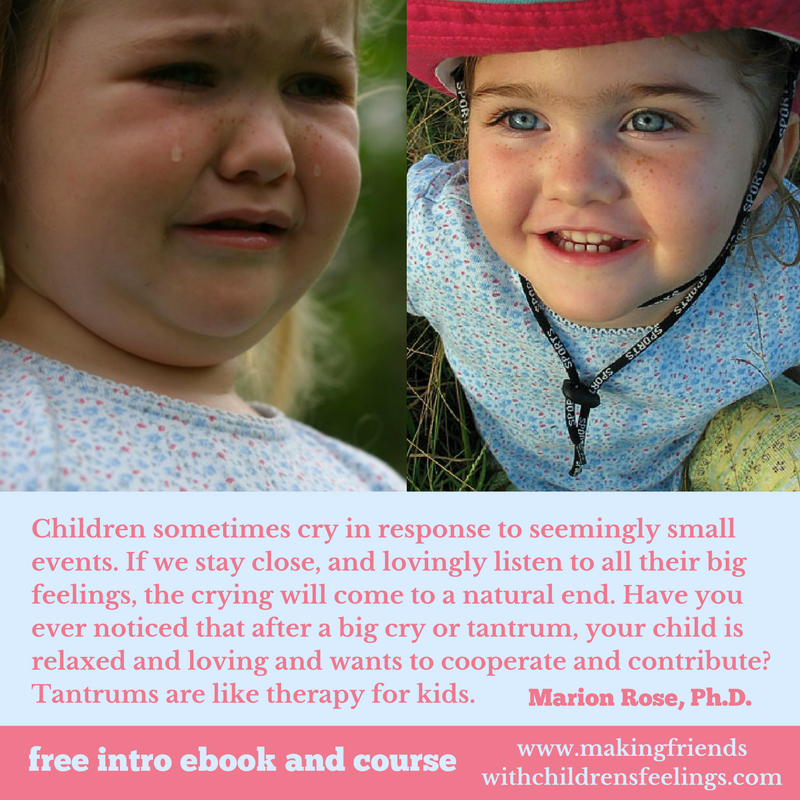Hello!
I wonder if you saw those memes that went around on FB a while ago, where children had tantrums or big cries in response to seemingly small things that their parents did?
The parents shared photos of their children.
Sometimes the parents were judging their parenting.
Sometimes parents were feeling confused about WHY ON EARTH their children were doing this.
Sometimes the parents were laughing (and remember, we often laugh when we feel uncomfortable, scared or embarrassed).

And when I saw that at the time, I had a vision to make an alternative set of memes, which were all about understanding WHY children sometimes cry or tantrum in response to seemingly small things, and how parents can respond empathically and effectively.
And now’s the time where I’ve created them and am sharing them.
So far I’ve made 12, and here are the first three:
Children sometimes cry or tantrum in response to seemingly small things.
Aletha Solter, Ph.D. calls this “The Broken Cookie Phenomenon.”
Why? Well, sometimes they can cry when they see that the last cookie in the jar is broken.
But it could equally be that we gave them the red bowl instead of the blue one, we asked them to stop what they’re doing, they fell over lightly, or one of a million things that don’t seem very big to us.
And then we may wonder WHY they have such a big reaction.

Well, as I talk about in the free ebook (and audio and video) that I made, we are just the same.
I wonder if you’ve ever been feeling really frustrated, and one small thing happened, and you had a really big reaction?
It wasn’t the small thing, it was how you were feeling already.
The small thing gave you a focus; a pretext, to let the feelings out.

Children are just the same.
When they suddenly have a big cry or a tantrum in response to a small thing, it’s often because they had a whole load of pent-up feelings, and that small thing helped all those other feelings tumble out.
The thing is, our culture hasn’t learnt to understand this, so parents are often told to distract, ignore, or punish their children when they have a tantrum.
But imagine you’d had a really hard day, and right at the end of the day you banged your foot lightly on the table leg and you burst into tears.
If your partner or friend was there with you, how would you feel if they told you to look at the lovely new comments on FaceBook, or they completely ignored you, or they told you to go to your room without any dinner?
When we have big reactions, we generally want calm and compassionate responses from someone who listens to us compassionately, without going in to their own big feelings, and without disconnecting from us.

And our children are just the same.
If they’re having a big tantrum at the end of their birthday party, instead of distracting them with cake, or telling them that they should be grateful for all their presents, or leaving them alone, or punishing them, we can simply be there with them, listening with loving compassion.
And if you’ve ever done that, and waited until all the tears were shed, you probably noticed how calm and present your child was afterwards?
After the relief and release of a connected cry or tantrum, children can return to their true nature – aware, compassionate, curious, able to concentrate, cooperate and contribute.
In the free course, several parents share examples of their children’s broken cookie moments. I so appreciate parents sharing their stories with us.
Here’s one of them:
“My child sat do to his math assignment, it was just 4 simple additions that he could very easily do.
He very quickly and efficiently did the first 3 and then left the 4th undone.
All of a sudden he started crying and having a full blown up tantrum about not wanting to do his homework, that it was too much for him and that he was totally unable to finish it.
At first I couldn’t understand his strong reaction and I said, “it’s only one simple addition that you can very easily do and I can help you too if you want and then you are done.”
He paid no attention and continued crying and raging and being very distressed about it.
So, I realised it wasn’t about the “addition”, he had some big feelings coming out.
I let him tantrum and cry and express all his upset about it and I lovingly and patiently listened to it.
Saying very little, but just now and then empathising with how hard he was finding it and how upset he was about it.
And then his upset about the homework turn into upset about our recent move to a different town, which involved changing home and school and leaving friends and his dad there.
It was indeed a lot for him to process, and I’m glad he could find a excuse to get it out and that I was able to offer patient listening and big compassion, so he could cry it out and find release.
After some 20 minutes of intense emotional expression, he stopped.
His face looked brighter, he looked at me and he said in a very relaxed manner “What’s for dinner mum?”
The rest of the evening he was calm and happy and I felt really connected to him and thankful that I had the awareness to be able to offer to my child that gift of been there for him in such a healing way.”

I long to live in a world where parents understand the reason for their child’s big crying or tantrums like this mother does, and for children’s feelings to be listened to with loving compassion and respect.
And yes, the same for adults’ feelings too!
If you want to help spread the word, I’d LOVE it if you’d share my memes (you can see more on my Facebook page) or the details of my free course at www.makingfriendswithchildrensfeelings.com
Marion
